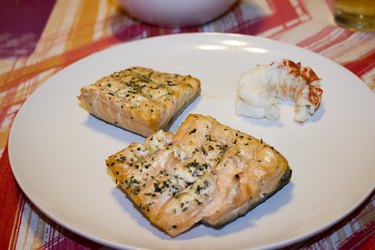
Grilling a salmon fillet — or steak — with the skin on is preferable to grilling skinless cuts because the skin helps hold them together as they cook in high, dry heat. Compared with other methods of salmon preparation, including baking, poaching and pan-frying, grilling can seem a bit difficult due to its increased capacity for disaster. The salmon could stick to the grill and become a charred mess, or it might more easily overcook before you can remove it from the heat. To avoid the potential pitfalls of grilling salmon, choose thicker fillets or steaks, which generally grill better than lighter portions, and always use a clean grill.
Step 1
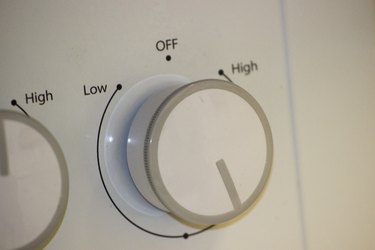
Preheat a gas grill to medium-high, or prepare a medium-hot fire in a charcoal grill.
Video of the Day
Step 2
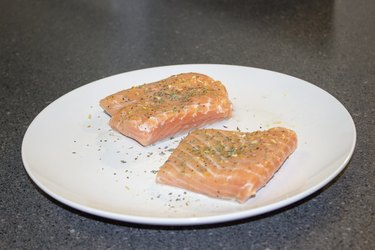
Rub 1 tbsp. of olive oil on each fillet, covering both sides. Lightly season both sides of each portion with salt and pepper.
Step 3
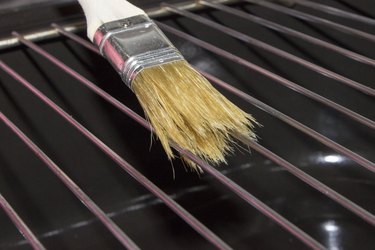
Brush the grill grate with a liberal amount of vegetable oil once the grill reaches its full cooking heat and you're ready to cook.
Step 4
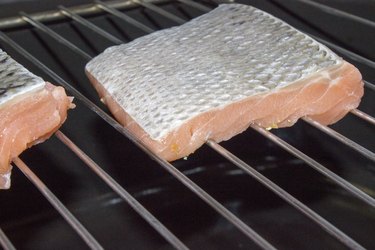
Place the fillets directly over the fire, skin side up. Cover the grill and cook the salmon for about four minutes, or until grill marks appear.
Step 5
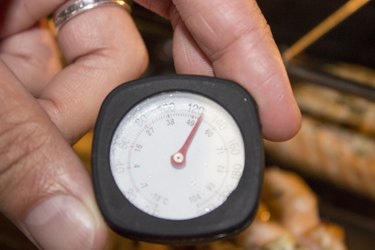
Turn the fillets over with a large spatula. Cover and cook for about five more minutes, or until the salmon is almost opaque. An instant-read thermometer should read between 125 and 130 degrees F when inserted into the center.
Things You'll Need
4 thick salmon fillets, skin on and deboned
4 tbsp. olive oil
Salt
Pepper
Vegetable oil
Tip
If you have time before you grill your salmon, you can whip up a semi-homemade watercress mayonnaise to accompany the fillets. Place one bunch of watercress, rinsed and stems removed, in a food processor with 4 tbsp. of high-quality mayonnaise and the juice of one fresh lemon. Blend the mixture until it’s smooth, then season with salt, freshly ground pepper and a dash or two of hot pepper sauce. Keep it in the refrigerator until you're ready to serve it over the hot fillets.
Video of the Day